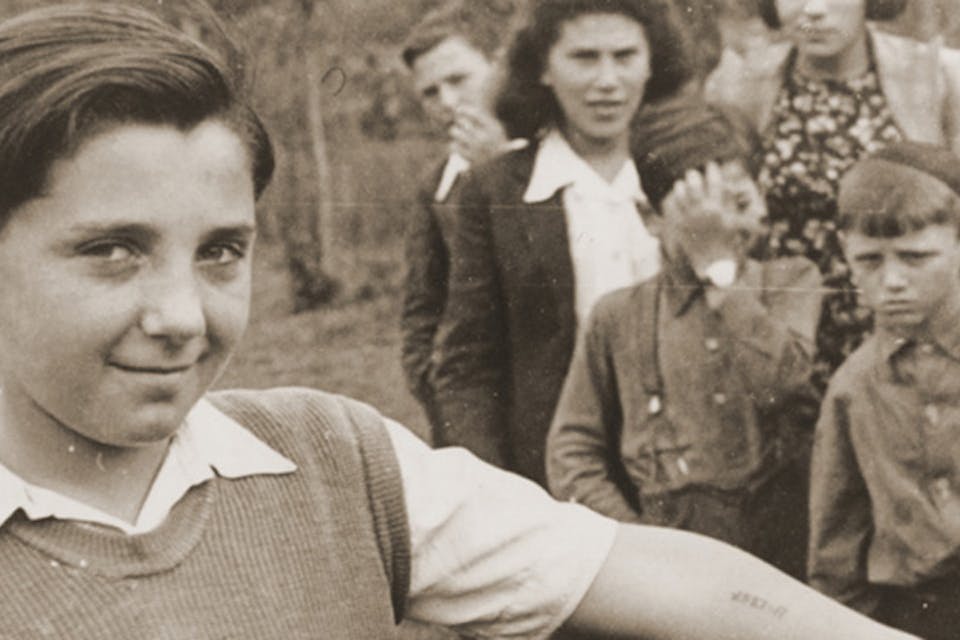
September 30, 2014
Adam and I: A Story
In Kristol's only published work of fiction, a guilt-ridden GI confronts an aggressive young Holocaust survivor.
This week in Mosaic we are celebrating the release of our new ebook On Jews and Judaism, a collection of Irving Kristol’s essential writings on the Jews. As his wife, the historian Gertrude Himmelfarb, recounts in her introduction, “Adam and I,” originally published in the November 1946 issue of Commentary, was Kristol’s “only published story. (He later wrote, and scrapped, a novel, deciding that fiction was not his forte.) It is also his first literary venture with an explicitly Jewish theme.”
I was quite unprepared for Adam, for his peculiar insensibility, his directness, his momentous inertia. He didn’t at all fit the picture that I had imagined—or that had been imagined for me—of the liberated Jew.
I met Adam in the spring of 1945 at the Zionist headquarters in Marseille, a shabby building on the Rue de Convalescence not far from the center of the city. It was a murky side street, dingy in the light of day, shadowy and dangerous after dark. Not fifteen feet from the building, huge yellow signs proclaimed that the rest of the street was “off limits” to American and British military personnel, a negative advertisement for a row of brothels. The infrequency of my visits to the building had nothing to do with its unpleasant location, or unprepossessing appearance. (I found it necessary to assure myself of this constantly.) Rather it arose from the anomalies of my position as an American and a soldier. These people had undergone so much and I had been so fortunate. . . . I had no wish to play the benevolent American uncle dispensing chocolate and cigarettes (though not enough to go around). What I wanted was to be with them in their sorrows, to be a scapegoat among scapegoats. I had daydreams of impoverishing myself, of donating all my worldly goods in an attempt to share their state of abandonment; but I knew that this would be the most sensational patronization of all. Knowing themselves, and knowing others through themselves, they would suspect the hidden sources of such a grandiloquent renunciation.